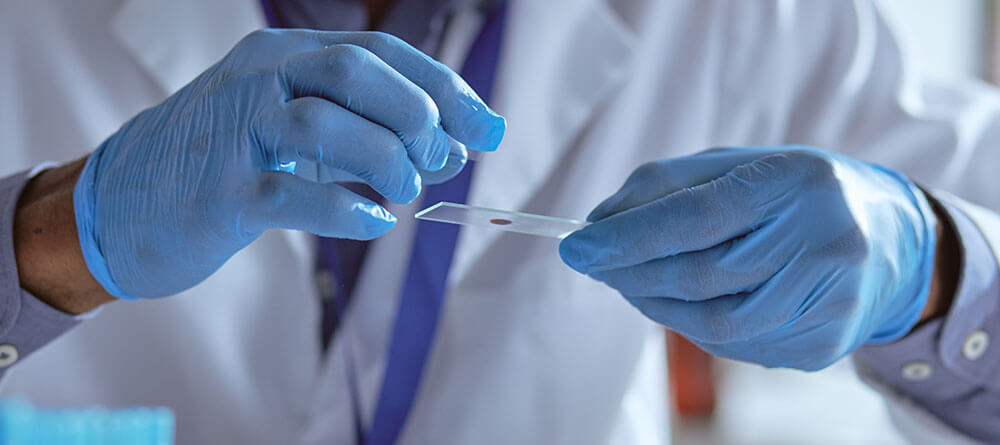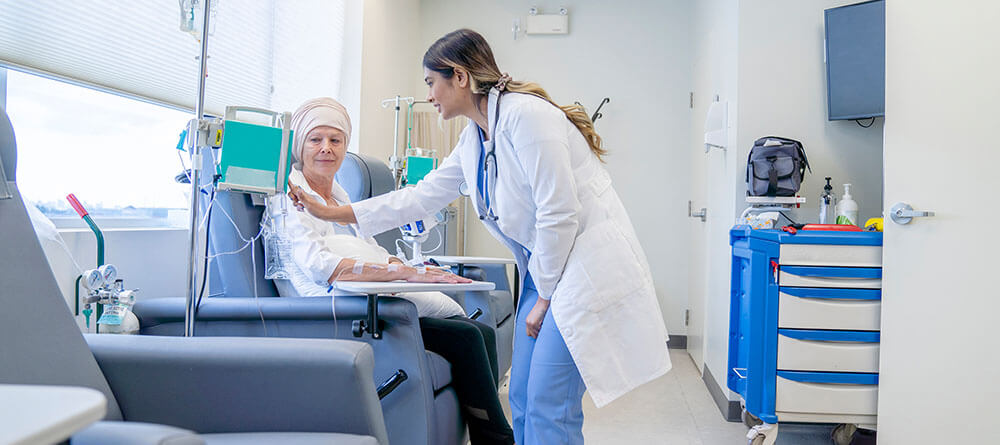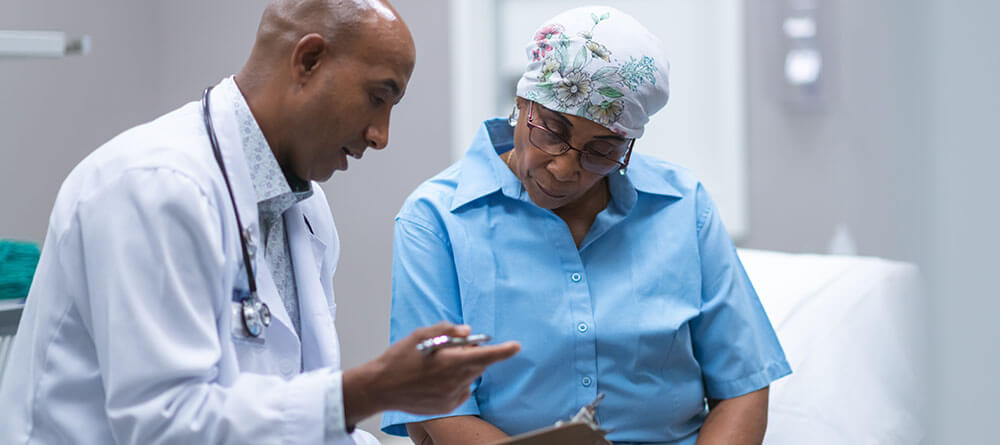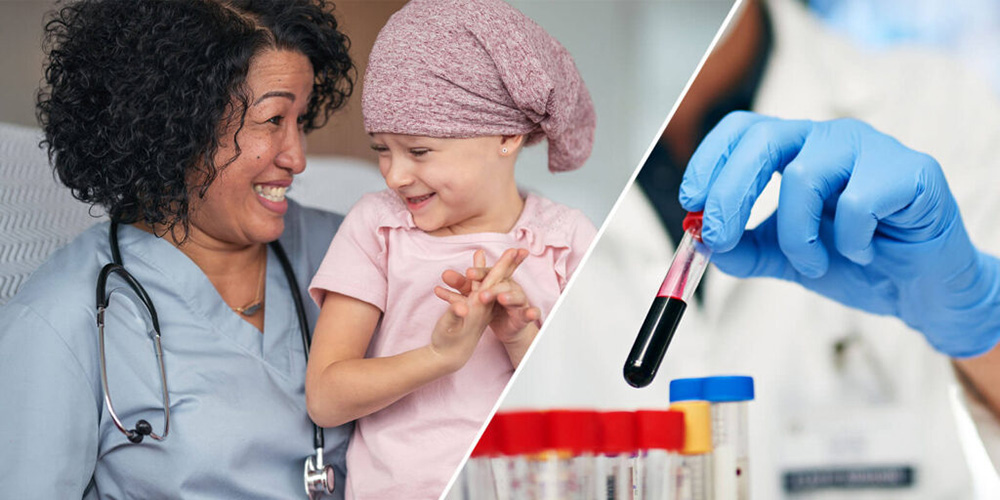One person in the United States is diagnosed with leukemia, lymphoma, or myeloma every three minutes, according to the Leukemia & Lymphoma Society. These are all types of cancer that can affect the bone marrow, blood cells, lymph nodes, and other parts of the lymphatic system.
When a patient displays possible symptoms of blood cancer or another blood-related disorder, they are referred to a specialist for diagnosis—those specialists are called hematologic oncologists.
Physicians who specialize in this sector of medicine undergo extensive training to become experts in their field. But what exactly is hematology oncology? Learn more about this important role.
What is hematology oncology?
Hematology oncology combines two distinct fields of medicine: Hematology is the study of blood, while oncology is the study of cancer.
As such, hematologic oncologists are physicians trained in the diagnosis, treatment, and prevention of blood cancers and blood-related disorders. These can include the following:
- Leukemia
- Multiple myeloma
- Non-Hodgkin lymphoma
- Hodgkin lymphoma
Hematologic malignancies differ from other types of cancer because they develop in the body’s blood cells and may not form tumors. The blood is made up of white blood cells, red blood cells, platelets, and plasma. Blood tests can show the presence of too many or too few of any of these components, which a hematologic oncologist can then investigate for signs of blood cancer or other blood disorders.

What does a hematologist oncologist do?
Hematologist oncologists do not perform surgeries on cancers. Rather, they provide medication to treat the condition. This process typically includes running diagnostic tests and crafting a treatment plan with a team of other specialists.
Examples of tests a hematologist oncologist might perform on the job include:
- Blood tests
- Bone marrow tests
- Biopsies
- Imaging tests
Examples of possible hematology oncology treatment methods include the following:
- Chemotherapy
- Radiation therapy
- Blood transfusion
- Immunotherapy
- Bone marrow transplant
The process of deducing a treatment plan can be impacted by a range of different factors, including the patient’s age, how fast the malignancy is progressing, and where in the body it has spread. Hematologic oncologists will often work in tandem with other specialists, such as surgeons, radiologists, and pathologists.
These physicians work primarily in a clinic setting, but they may also spend time in a hospital environment. “One unique part of the field is that I have both inpatient and outpatient duties,” explains St. George’s University (SGU) grad and current pediatric hematology oncology fellow Dr. Jessica Krugman. “I see my patients in the clinic, but we also have a team dedicated to patients with hematologic or oncologic diagnoses in the hospital we manage.”

How to become a hematologist oncologist
The training to become a hematologist oncologist is fairly rigorous. After graduating from an accredited Doctor of Medicine (MD) program, you’ll need to complete an internal medicine residency, which takes about three years. You’ll then need to participate in a hematology oncology fellowship, which will take another three years.
There are further subspecialty options hematologist oncologists can pursue. In fact, these physicians may opt to specialize in any portion of the body system, such as the lungs, the liver, or even bone and soft tissue.
Beyond the extensive medical training, Dr. Krugman notes that there are some core attributes successful hematologist oncologists must maintain. “I believe we all possess great compassion, dedication, and work ethic. In times of stress for our patients, these qualities help ease their concerns as much as possible,” she says. “Since you’re seeing your patients so frequently, these qualities are essential.”
The journey to becoming a hematologist oncologist can be a challenging one, but Dr. Krugman explains the motivation that keeps her and her fellow physicians going: There’s nothing quite like being there during one of the lowest points of a patient’s life and possibly providing them with answers and life-saving treatment.
And there will always be a need for these invaluable cancer specialists. The American Society of Clinical Oncology notes that demand is high, with a competitive median annual salary ranging from $400,000 to $499,999.

You could save lives as a hematologist oncologist
Completing the medical training needed to specialize in hematology oncology is no easy task. But after learning more about this important sector of medicine, you may just be up to the challenge.
The most effective way to get started is to seek out a high-quality medical school that can provide you with the education and training you’ll need. Dr. Krugman found what she was looking for at St. George’s University. “SGU gave me the essential fundamentals to learn the basic sciences and also great work ethic,” she shares. “I was able to learn as much as possible in clinicals, attain a top residency, and I’m now completing my fellowship.”
Dr. Krugman is well on her way to achieving her goal to become a hematologist oncologist, and you can do the same. Prepare yourself to do your own med school research and discovering the variety of medical specialties that exist by reviewing our article “Examining 23 Internal Medicine Subspecialities.”

